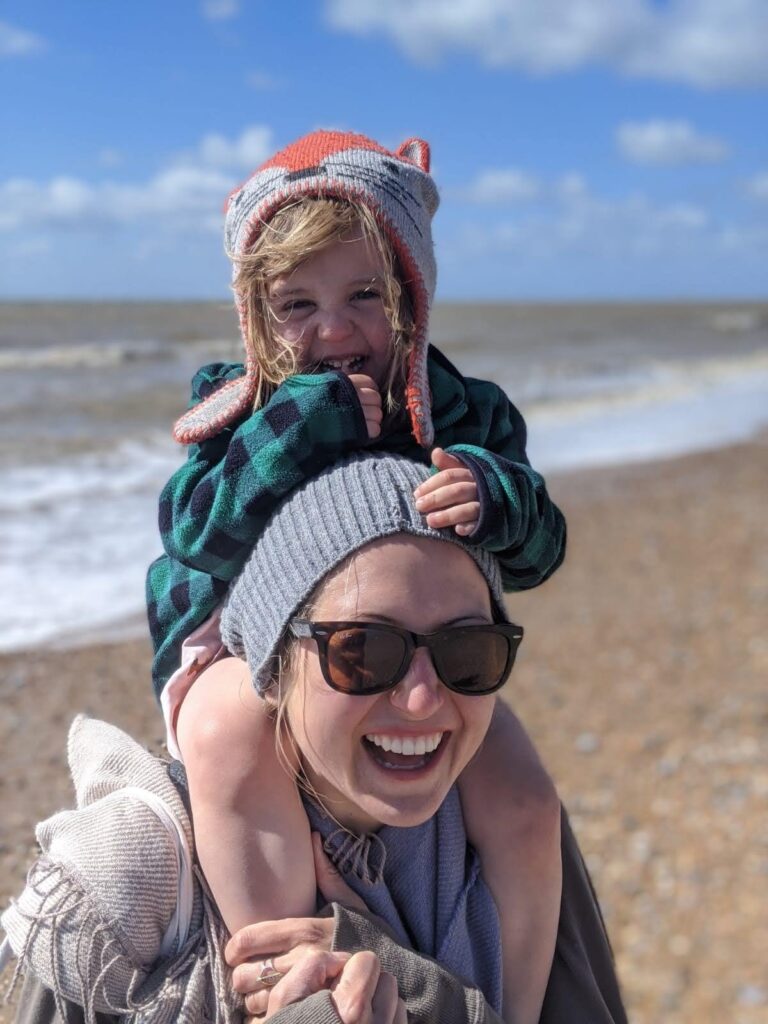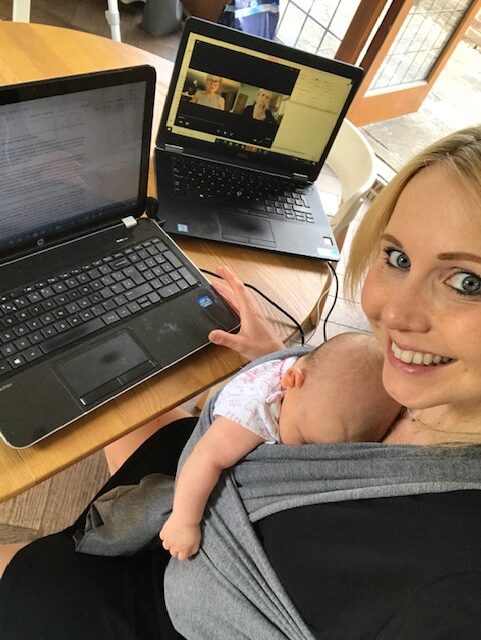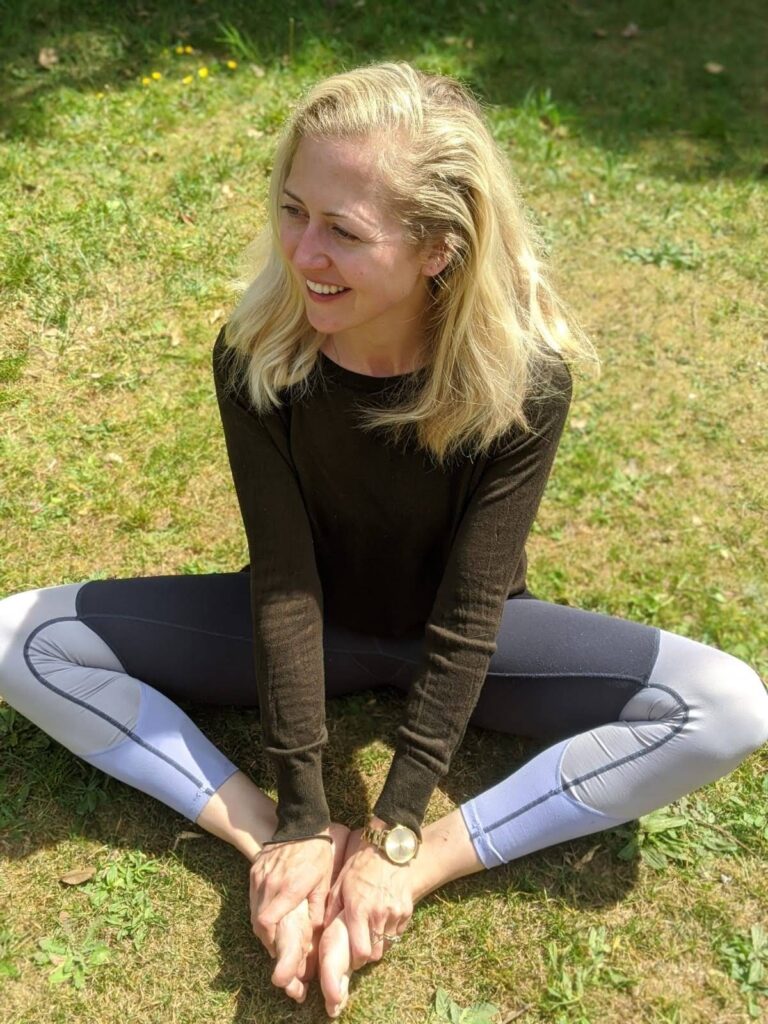This month, with a new baby on board, I’ve been exploring the recently launched programme for pregnant women and new mothers: Postpartum Plan. And this week I was lucky enough to interview the founder of the programme, Meg Murray Jones.
About the plan
The Postpartum Plan is designed for women from 35 weeks pregnant to six weeks postpartum. However, as I’m finding, the material and tools it provides have a life way beyond those six weeks. Having come to the plan at five weeks postpartum, I can personally attest to its value. It is no surprise to me that a lot of the women on the platform are second time mums who have previous experience of the drop off in support for mothers post birth.
I couldn’t have come across the Plan at a better time for me. After a traumatic first birth experience – which came back to haunt me in the days leading up to the due date of my second – the birth of my second daughter couldn’t have gone better. Yet three days later we found ourselves back in hospital for a stressful and anxious week. The days I’d planned for us to spend together as a new family of four were swapped for lonely hospital days worrying about my baby, missing my elder daughter and struggling with bleeding, an infection of my own, night sweats and leaky boobs.
By the time we made it home again I was so physically and emotionally exhausted that all of the good intentions for a healthy, energetic postpartum period had evaporated. With a toddler to look after thrown into the mix, I found myself eating unhealthy treats and with little motivation to exercise.
Discovering the Postpartum Plan really helped me to get my physical and mental wellbeing back into alignment.
Interviewing Meg
In my interview with Meg, the founder of Postpartum Plan, I found not only a compassionate person who wants to reframe attitudes around birth and the postpartum experience for all mothers, but also an innovative business woman, who has taken an idea from concept to delivery in five months with amazing results.

After a change in direction from a management consultant to a reflexologist, Meg had the idea for Postpartum Plan in January 2021. Spurred on by the idea of mums being isolated during lockdown, she launched the programme in May this year.
Read on for my interview with Meg:

Tell us more about your first postpartum experience and how this motivated you to start Postpartum Plan.
With my first child I had a great pregnancy. I was planning on a water birth, doing hypnobirthing and everything that everyone says you should do and then something went wrong and I had to have an episiotomy and there was a risk to my baby of brain damage and he had to be put in an incubator for 72 hours and I wasn’t allowed to touch him. At the end of the day, the birth was fine because I had my baby, but I don’t think as mothers we are ever trained in the emotional recovery of birth and I got really bad PTSD.
I had a really bad trauma response; I had to deal with the fact that my birth hadn’t gone to plan. And the interesting part is that I didn’t tell anyone. I didn’t tell my husband about it. I was having flashbacks and visions in the night. In the back of my mind I had this idea that I was supposed to be a perfect parent, but I didn’t have the support I needed. While I had friends around me, what I needed was an expert to go ‘everything is fine. You birthed really well. Here are the tools to deal with PTSD’.
And then I got pregnant again very quickly when my son was nine months old and I was like ‘I’m going to do things properly this time’. So I invested, financially and emotionally, in experts. I had a doula and a physio – basically everything that’s on the Postpartum Plan – and the difference in the birth and my recovery was so extreme I felt like that is what everyone needs it just that not everyone can afford a lactation consultant, plus a physio, plus doula etc. So what can we do to make that more accessible?
And then lockdown happened and I was like ‘wow, so many women out there are so alone and that’s when I realised it had to happen now.
A major thing with Postpartum Plan is that I do believe there needs to be a societal shift. Society has made us believe that everything needs to be about the baby – and of course it does – but in days gone by there was also a village who would look after us, the mother. We don’t have that any more so when people say ‘sleep when the baby sleeps’ we can’t do that, because we are on our own. Society isn’t built for motherhood anymore. There isn’t enough known about what happens to us physically and emotionally when we have babies to understand the level of support that we need.
How did you come to your primary pillars for the Postpartum Plan?
I really thought about what I needed when I had my kids and then did a lot of research into rehabilitation programmes and their structure. The difference being is that I changed the language around the pillars – so instead of ‘exercise’, for example, we focus on ‘movement’, because I believe as women we have quite a distorted idea of what ‘exercise’ mean. Movement is good for you and you don’t have to be on a spin bike to move your body. Movement, Mind-set and Reflection were really important to because we’ve lost that connection with body and with loving our bodies. Recovery was the first one I made because we should all recover, and then Nutrition was just a really important one for identifying nourishing food that you need to recover. What is it we need to bring back those nutrients that get so depleted in pregnancy and birth?
In terms of the experts in each area, how did you select them?
I wanted proper experts – people who really got the idea and ethos of the programme and have a genuine understanding of the whole subject. It was mostly mothers and people with proper, high-level qualifications. I was keen that I wasn’t just asking them for content but that we were a team working together.
I met Meg Vickers through a baby event and we got on really well. She helped me with my diastasis – I’d tried for two years to close the gap and she fixed it in six months. Thando was my doula. Tricia was recommended through my therapist as I used EFT (Emotional Freedom Technique) to recover from the trauma of my first birth, as she specialised in maternal mental health. Jess, our nutritionist, worked with me in my previous role as a management consultant and she retrained in nutrition when I moved into reflexology. Emma and I are university friends and have done various retreats together – with her specialising in the yoga elements and me in the reflexology.
EFT is quite a niche practice. How did you come to it and how did you find it worked for you?
The nutritionist I had after I gave birth recommended it to me. All of the reading I’ve done about physical and emotional health has taught me that it’s better to eat chocolate cake happy than kale unhappy. Our stomachs are our second brain and if you are stressed or in trauma your body doesn’t digest properly because you are in fight or flight so all of the blood goes to the organs you need to flee, rather than rest and digest. So I was looking for something that would help to activate to parasympathetic nervous system, allowing people to really recover.
EFT is one of the most effective forms of body therapy. We spend a lot of time in our mind, and not enough time focusing on our body’s health and that’s what EFT does – it’s about understanding your body and using your body to heal. You will notice it when you are stressed or when you see someone else stressed, they will touch the areas that are used for EFT subconsciously.
Trauma with a little t is just anything you can’t process properly in the moment. We all have micro-traumas that go on in our lives and I would say that birth is a trauma with a little t because there might be a moment within that birth when you go ‘whoa that’s not what I expected’ and we are not prepped for that. You aren’t told how you are going to feel if your birth doesn’t go to plan. We are all told to do a birth plan, but where is that Postpartum Plan for the days and months later when you are bleeding and leaking and recovering?’
Do you anticipate there being a personalised element to the programme in the future beyond the core package?
There is an element of personalisation via the weekly lives. If you tune into one of those lives with our experts the chances are you will get a one-to-one. You can ask questions and get some really detailed feedback.
I’m also launching Postpartum Plus in August. That is a backend membership, so if people want to maintain access to the weekly lives, to the Facebook community and to the weekly newsletters then it will be £15/month for access, plus additional video content and personal nutrition advice. So there is a personalised element coming.
Do you anticipate there being any in-person elements to the programme in future?
For Postpartum Plus we are going to do an offer to have an in-person one-to-one with the experts. But as we are international we are hoping to launch a directory on the site to give people access to the right experts in their area.
Are the lives available after the event?
We record most of the lives, so yes. If the session is particularly personal, or includes particularly personal questions I may stop the recording. With Postpartum Plus you will get all of the live sessions that have ever been recorded.
In your podcast you ask your interviewees for three takeaways from their ‘pillar’. What would be your three takeaways for our readers about Postpartum Plan?
- There is nothing wrong in asking for help. Women seem to think they should be able to do it all, but the world wasn’t made by doing it alone, it was made through community. There is no shame in asking for help.
- Know that having a child is an emotional and physical endurance test, that will be one of the best things you ever do, but it needs to be something that is seriously thought about.
- Don’t see birth as the end goal. That’s why our tagline is ‘laying the emotional and physical foundation for a lifetime of parenthood’, because what we are trying to do is to intervene in those first six weeks to help establish that recovery so that you are emotionally strong for the rest of your life.
We base our content around the pillars, Eat, sweat Breathe, which align nicely with those of the Postpartum Plan. Can you share your go to meal/snack; your favourite form of movement; and how you relax?
Eat – Salmon, tahini, broccoli and brown rice – it’s almost like comfort food for us now! The apricot cookies from Postpartum Plan we love.
Sweat – I do Foundation Training. I’ve come to realise that low impact doesn’t mean low results. It is all about micro-movements and getting your posture correct.
Breathe – meditation – I know that people find meditation a scary word and breath-work is more accessible, which is what we’ve done on Postpartum Plan, but I like to spend five to ten minutes every morning just to feel what is feeling a bit icky and tense.

Find out more
Learn more about the Plan via the website.
You have 90 days of access from the week you sign up with the option for Postpartum Plus coming in August. The Plan includes a dashboard of podcasts, videos, worksheets and recipes, a toolbox with treats for you and your baby, access to the Facebook community and live interview events.
Prices start at £99 for online only access and £150 for online plus the toolbox.

Leave a Reply